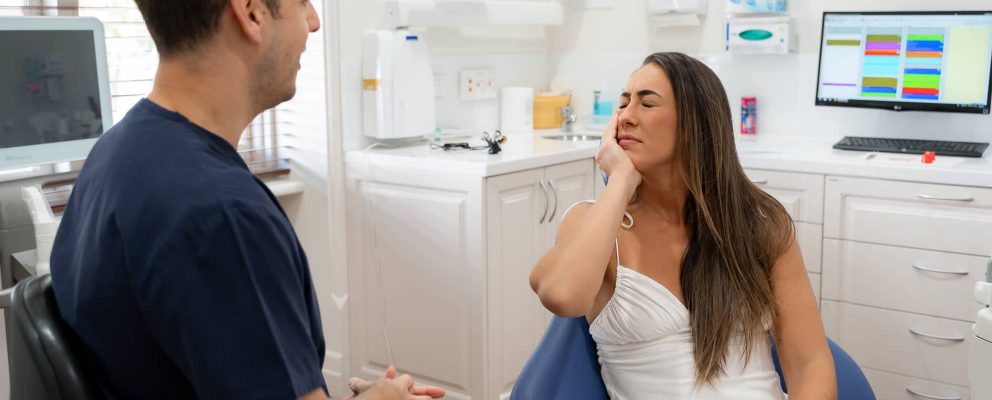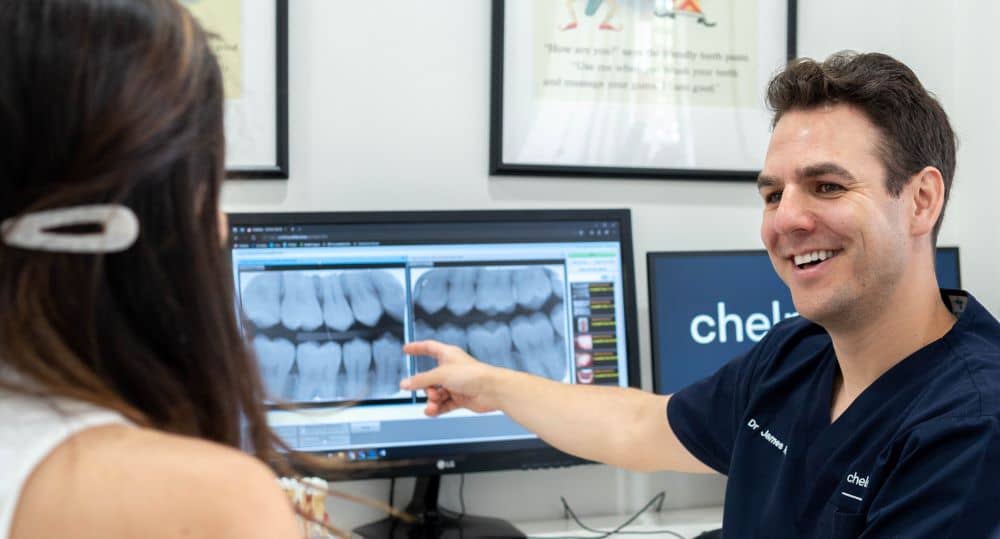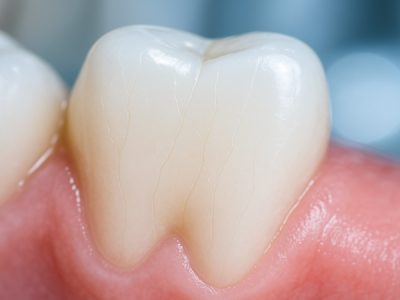Wisdom teeth are a natural part of adult dentition, but they can often lead to discomfort and complications. Interestingly, some adults don’t have wisdom teeth at all—an uncommon yet completely normal variation.
If you’re noticing discomfort or suspect a problem with your wisdom teeth, this guide will help you understand the signs and explain how our team can provide the right treatment to keep your mouth healthy and pain-free.

Key Summary
Wisdom teeth, while a normal part of adult dentition, can sometimes cause discomfort or complications. Some adults don’t have wisdom teeth at all—a unique but not unusual variation. In cases where wisdom teeth are present, their positioning is more crucial than the actual number of teeth. If you’re experiencing pain or suspect complications with your wisdom teeth, we can help identify the issue and recommend the best treatment plan.
What Are Wisdom Teeth?
Wisdom teeth are the third and final set of molars located at the back of the mouth, typically two on the bottom and two on the top. They usually emerge between ages 17 and 25, though it’s not unusual for them to appear later in a person’s twenties.
When wisdom teeth do erupt, they often lack adequate room to come through properly. This can lead to a variety of issues, which is why wisdom tooth extraction is one of the most common dental procedures.
Do All Adults Have Wisdom Teeth?
It’s a common misconception that everyone has four wisdom teeth. In reality, up to 35% of people are missing one or more wisdom teeth, with some having none at all. If you have fewer than four wisdom teeth or none, there’s no cause for concern.
More important than the number of wisdom teeth is whether there’s sufficient space for them to emerge properly. When space is limited, wisdom teeth may erupt at odd angles or become impacted, potentially leading to oral health issues.
How to Tell If Your Wisdom Teeth Have Come Through
Most people can visually confirm if their wisdom teeth have emerged by looking at the far back of their mouth, where the third set of molars should appear. However, if your wisdom teeth haven’t erupted yet, your dentist can confirm their presence with an X-ray.
Signs that your wisdom teeth are coming in can vary widely. Some people may not notice any symptoms, while others may experience discomfort. Typical signs include:
- General jaw tenderness
- Mild discomfort in the mouth or face
- Swelling, tenderness, or redness in the gums near the back of the mouth
- Crowding of other teeth
- Minor facial swelling
- A white spot or point emerging through the gum (the top of the tooth)
- Infection or unpleasant taste
If you’re experiencing one or more of these symptoms, it may be time to consult your dentist.
When Is Wisdom Tooth Extraction Necessary?
While some people’s wisdom teeth emerge with adequate space, most experience issues due to insufficient room in the mouth. When wisdom teeth fail to erupt fully or emerge at an angle, they can cause crowding, shifting of other teeth, and an increased risk of decay or infection.
A wisdom tooth that only partially erupts may leave a flap of gum tissue over part of the tooth, trapping bacteria and debris. This makes cleaning difficult and can increase the risk of cavities and infection.
Common Reasons for Wisdom Tooth Extraction:
- Partially erupted teeth that allow food and bacteria to become trapped
- Wisdom teeth that fail to erupt and cause pain or infection
- Teeth positioned at an unusual angle, putting pressure on other teeth
- Swollen, infected gums in the area
- Pain when biting or chewing
- Persistent jaw pain, swelling, or difficulty opening the mouth
- Cysts, abscesses, or tumours near the impacted teeth
- Shifting of surrounding teeth due to overcrowding
If you’re experiencing any of these symptoms, it’s important to reach out to your dentist for an evaluation. Wisdom teeth pain is often considered a dental emergency, and quick action can help prevent further complications. Your dentist may recommend extraction to eliminate infection risks and prevent damage to surrounding teeth.
Risks of Delaying Wisdom Tooth Extraction
Delaying treatment can lead to serious complications. If an infection develops around an impacted wisdom tooth, it can cause side effects like bone loss, nerve damage, and pain that spreads to other areas of the face and jaw. Without timely treatment, these issues can worsen, leading to longer recovery times and more complex procedures.
For individuals with recurrent wisdom tooth pain or confirmed infections, extraction is generally a straightforward, effective solution to prevent ongoing issues.
Common Questions About Wisdom Teeth
-
How can I tell if I have wisdom teeth?
- Most people can see their wisdom teeth emerging behind the second set of molars. For those who aren’t sure, a quick dental X-ray can reveal whether wisdom teeth are present and if they’re impacted.
-
Do I need to remove my wisdom teeth if they aren’t causing problems?
- Not necessarily. Your dentist can monitor wisdom teeth at regular checkups to ensure they aren’t causing harm. Extraction is generally only necessary if complications arise.
-
Why do some people not have wisdom teeth?
- Genetics play a role in determining whether a person has wisdom teeth. Up to 35% of people naturally lack some or all of their wisdom teeth, which may be an evolutionary adaptation.
-
Is wisdom tooth extraction painful?
- Modern dentistry makes wisdom tooth removal a relatively comfortable experience. Your dentist will use local anesthesia to numb the area, and you’ll receive post-care guidance to manage any discomfort during recovery.
Wisdom Teeth Pain? Chelmsford Dental Can Help
If you’re experiencing pain or have concerns about your wisdom teeth, our caring team at Chelmsford Dental is here to help. Whether your wisdom teeth are erupting normally or causing complications, we can provide expert guidance on the best course of action.
Schedule a free consultation today to discuss your options for wisdom teeth care. Contact us with any questions—we’re here to help ensure your oral health is in excellent hands.




